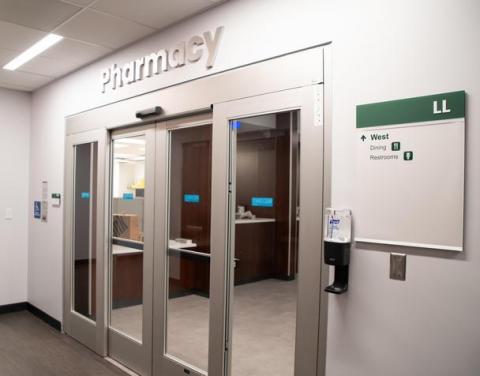Medication Therapy Management (MTM) is used to describe several clinical services provided to patients by the healthcare team’s medication expert, the pharmacist.
Services that are considered part of MTM include:
- Anticoagulation monitoring
- Disease state specific patient consultations: pain management, diabetes, asthma and more
- Med-synch programs to increase adherence
- Pharmacist interventions for safety: dose recommendations, drug interactions detected etc.
- Immunization review and delivery
- Health and wellness programs
Questions? Call the Retail Pharmacy at 701.780.3444 or Altru Family Medicine Center Pharmacy at 701.780.6870.
Comprehensive Medication Review (CMR)
A pharmacist meets via phone or face-to-face with the patient and thoroughly reviews their entire medication profile including over the counter medications and supplements. During this review, the patient’s understanding of their medication(s) is assessed, as well as adherence issues and potential medication problems. Follow-up communication between the pharmacist, the provider and patient will address any issues while increasing patient safety, understanding and adherence.
Target Medication Review (TMR)
A patient’s insurance provider will note one specific issue such as late refills, unsafe medications or gap in therapy. The plan tasks the pharmacist to validate the issue and work with the patient and provider to correct it.
Frequently Asked Questions
Why is there a need for MTM?
Experts estimate 1.5 million preventable adverse events occur each year that result in $177 billion in injury and death. (provided by the American Pharmacist’s Association APhA)
Where do patients receive MTM services?
In all care settings where patients use medications. CMR and TMR are most often delivered by the patient’s outpatient retail pharmacist.
Which patients benefit from MTM services?
Any patient using medication or over the counter medications/supplements can benefit. Especially our patients with multiple chronic disease states, medications that require special monitoring (specialty medications or anticoagulants), patients using many medications possibly from multiple pharmacies or patients recently discharged from the hospital.
Does the patient pay for these services?
- CMS established in 2003 that all Medicare Part D plans must provide patients with MTM services including at least an annual CMR. Each plan has differences in what services are offered. There is no copay for these services.
- Most commercial plans and State Medicaid offer a variety of MTM services at no additional cost and services are typically covered in full.
- Any patient can receive these services and would pay an established fee if not covered by their insurance plan.





